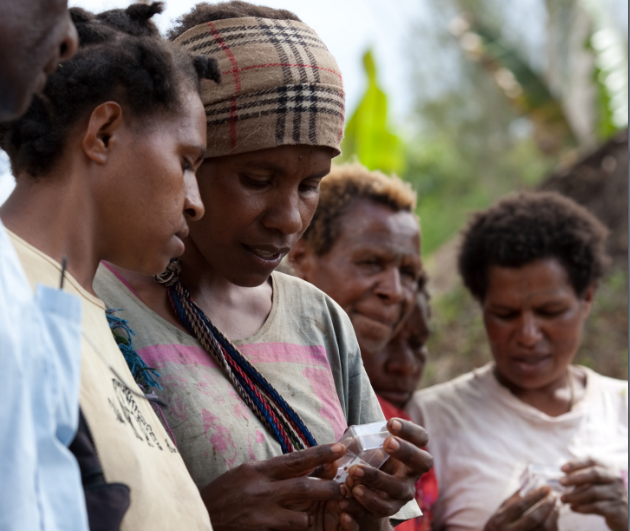For every 213 babies born in Papua New Guinea, one woman will die in childbirth—increasing access to reproductive health care will end this tragedy.
Why we care: In Papua New Guinea, 9 out of 10 people live in remote, rural settings with limited awareness of or access to lifesaving sexual and reproductive health care services.
How we’re solving this: Marie Stopes Papua New Guinea conducts mobile outreach – by boat, car and plane – to deliver vital family planning services to those who need them.
Papua New Guinea’s (PNG) health indicators are among the worst in the Asia Pacific region. For every maternal death, an additional 30 women or girls suffer from some form of injury, infection or disability. Teenage pregnancy rates are high, which is troublesome given that the leading cause of death for girls and women aged 15 to 24 are pregnancy-related complications. Extreme poverty is widespread in PNG and 87% of the population live in rural and typically isolated areas.
With $10,200, Marie Stopes Papua New Guinea can provide mobile outreach for 30 days, reaching 300 women in 10 villages. We bring services directly to clients. Our outreach teams travel with contraceptive supplies and other medical equipment to deliver high-quality family planning services free of cost to those who need it most.
Central Province, where the capital Port Moresby is located, will be the focus of this project because the lack of opportunities in rural regions has driven young people toward Port Moresby in search of employment. Women living in Port Moresby or around the capital often lack jobs and social support and are at high risk of unwanted pregnancy and STIs. Government health services are struggling to cope with increased demand due to a lack of skilled health workers and erratic supply of medical goods. This means that lifesaving contraceptives and maternal health care services are frequently of poor quality or not available at all. Especially for young women, pregnancy and inadequate health services can be a death sentence.
This project will cover:
- Outreach operations– Fuel, vehicle maintenance, accommodations for clinical staff, security, overnight storage and boat rental.
- Equipment & supplies– Family planning commodities, medical supplies and equipment.
- Salaries– Two nurses, one outreach driver, one outreach coordinator, a project coordinator and a clinical service manager. All are PNG citizens.
- Training- For staff to ensure clinical quality.
- Health education- Health education materials including posters and pamphlets.
- Monitoring & evaluation– A supervisory visit to an outreach site and the management of data collection.
Marie Stopes Papua New Guinea is one of the only dedicated sexual and reproductive health organizations working on the ground in Papua New Guinea. Marie Stopes has been working in PNG for over six years and established its Port Moresby clinic, which will act as the base for this outreach project, in 2006. The services that Marie Stopes Papua New Guinea provided during 2012 are estimated to have averted 10,882 unintended pregnancies. Our local doctors, nurses, midwives and health educators provide important family planning services so that women can have children by choice, not chance.


